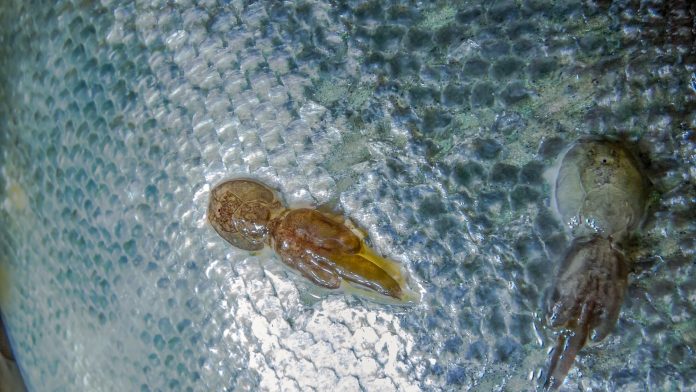A team of aquaculture experts is developing a pioneering oral vaccine for sea lice, helping the industry to tackle one of the biggest threats to the health and welfare of farmed Atlantic salmon.
The project, supported with funding from the Scottish Aquaculture Innovation Centre (SAIC), aims to develop a novel sea lice vaccine, which can be delivered through fish feed. The collaboration between the University of Stirling‘s Institute of Aquaculture, BioMar, SiSaf, and Tethys Aquaculture, developed this vaccine to minimise the impact that sea lice have on fish health and wellbeing, which costs the Atlantic salmon production industry more than £50m per year in Scotland alone.
Despite existing research and prior testing of injectable vaccines, success has so far been limited with no commercial solution currently being available. Veterinary medicines continue to be employed for control; however, sea lice are becoming increasingly resistant to treatment.
Dr Sean Monaghan from the Institute of Aquaculture at the University of Stirling said: “Reducing the impact of sea lice is a major concern for salmon producers around the globe and we are making headway towards finding an effective method for vaccinating fish against this parasite. There is strong evidence to support the use of an oral vaccination approach, using nanoparticles in feed for vaccine delivery in order to trigger the desired antibody response.”
Utilising nanoparticle technology
The new approach to oral vaccination will deliver the vaccine via specially developed feeds that aim to improve fish resistance to parasites using advanced nanoparticle technology. Innovative bio-engineering tools will also target sea lice by triggering strong immune responses in the skin of fish, rather than delivering it through the bloodstream alone.
Polly Douglas, aquaculture innovation manager at SAIC, added: “Addressing environmental and health challenges, including sea lice, is one of SAIC’s priority innovation areas and a crucial concern for the global aquaculture industry. The work of this project correlates directly with the Scottish Government’s 10-year Farmed Fish Health Framework, aiming to improve fish health, protect the marine environment, and ensure Scotland’s main food export grows sustainably.
“Collaborative research and development projects, such as this, harness the expertise of academia, industry partners and salmon producers, and can play a major role in future sustainability of the industry.”









